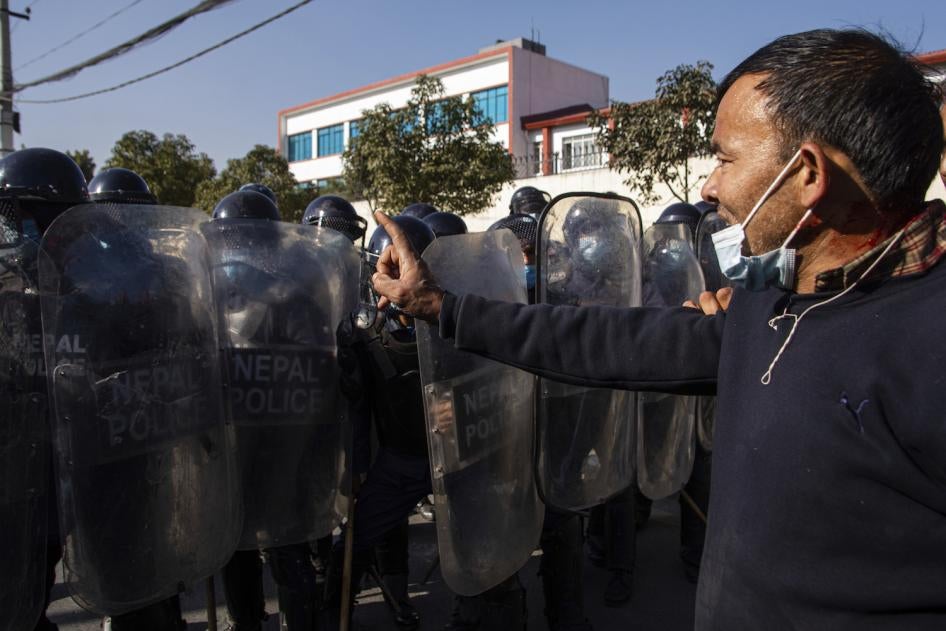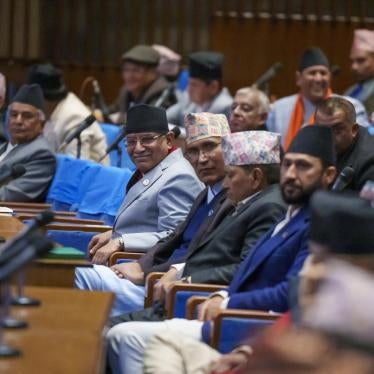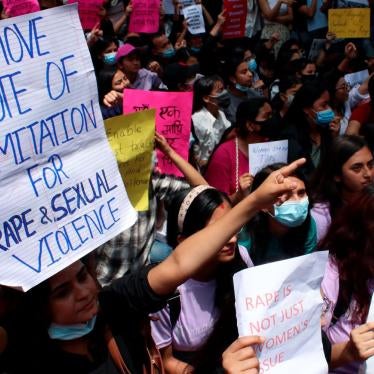The Nepal government has shown its disregard for accountability for human rights abuses by appointing someone implicated in a torture case in 2012 as the new inspector general of police. As inspector general, the most senior position in the police, he will be responsible for overseeing investigations into police abuses.
In 2011, Basanta Bahadur Kunwar, now Nepal’s most senior police officer, was sent home from his posting on a United Nations peacekeeping mission in Liberia after the UN was made aware that he faced a lawsuit in Nepal where he was alleged to have tortured a person accused of theft.
In civil proceedings, a man named Arjun Gurung brought a claim against the state of Nepal claiming he was tortured by Kunwar and others in 2009. In 2012, the Kathmandu district court ruled that he had been tortured, and ordered the government to pay him 30,000 Nepali rupees (at the time of the ruling, worth USD$337) in compensation but did not name nor order any disciplinary action against the perpetrators.
Successive governments of Nepal have systematically failed to bring alleged human rights abusers to justice, instead even rewarding some of those accused of violations with promotions. In 2020, the National Human Rights Commission published 20 years of data, naming 286 people in Nepal, including military personnel and former Maoist insurgents, as suspects in serious crimes including torture, enforced disappearances, and extrajudicial killing that authorities had failed to prosecute. Among them were 98 police officers.
The current government, led by Prime Minister Pushpa Kamal Dahal of the Maoist party, and including the Nepali Congress as well as other smaller parties, is attempting to pass a bill that would protect people accused of some human rights violations from prosecution, if their alleged crimes – including murder – were committed during Nepal’s 1996-2006 armed conflict.
Victims of conflict-era violations, who are campaigning for an end to impunity in Nepal, condemned Kunwar’s appointment as chief of Nepal’s police. “It shows the government is not serious about human rights issues,” Ram Bhandari, a conflict victim and a human rights activist, told the Kathmandu Post.
The government of Nepal has a duty to uphold human rights and respect the rule of law. Nepal’s international partners should make clear that they will not engage with institutions or justice processes that flout international human rights standards, or with officers and officials implicated in serious rights violations.










